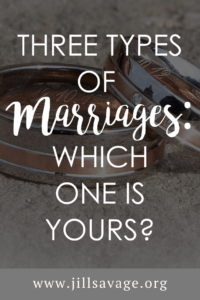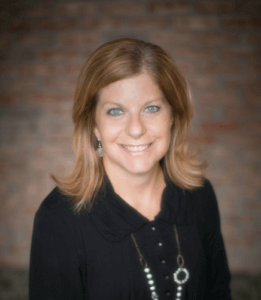 As marriage coaches, we have the opportunity to help healthy marriages stay healthy and struggling marriages get back on track. Sometimes, however, we run into toxic and even abusive relationships. To better understand the difference between healthy, struggling, and toxic relationships, we’re interviewing Brenda Yoder today.
As marriage coaches, we have the opportunity to help healthy marriages stay healthy and struggling marriages get back on track. Sometimes, however, we run into toxic and even abusive relationships. To better understand the difference between healthy, struggling, and toxic relationships, we’re interviewing Brenda Yoder today.
Brenda is a national speaker, Licensed Mental Health Counselor, and author of Fledge: Launching Your Kids Without Losing Your Mind and Balance, Busyness, and Not Doing It All. She has been a service provider for foster care, domestic violence, has worked extensively with at-risk youth and individuals in emotionally abusive marriages.
Brenda is a wife of thirty years to Ron, her high school sweetheart, and is mom to four young adult and adult children. They live on a farm in northern Indiana. You can connect with Brenda at brendayoder.com. where she writes about faith, life, and family beyond the storybook image. You can also connect with her on Twitter, Facebook, Pinterest, and Instagram.
**********************************************************************
 Brenda, what does a healthy marriage look like?
Brenda, what does a healthy marriage look like?
Healthy marriages have mutual trust, respect, honesty, and autonomy for both spouses. The boundaries of each spouse are respected by the other party, even when they disagree. Healthy spouses communicate with one another to work through problems. Healthy marriages have individuals who are committed to God, the marriage itself, even when there are problems. Most importantly, both spouses have equal power in healthy marriages.
What does it mean to have “equal power” in a marriage?
Equal power means that both spouses have reciprocal equity in the marriage. Both partners feel like they have an equal say in the marriage, even if they disagree. It’s where one partner does not exercise more power of the other one. Both spouses feel like they have a voice and choice in the marriage—that they are partners. They negotiate and respect one another. Even marriages representing a complementarian theology have equal power. One does not control the other partner, they just have different roles.
What moves a marriage from healthy to struggling?
Outside pressures or personal struggles can take marriages to an unhealthy place. A struggling marriage is when significant issues of one or both spouses disrupt the health of the marriage, or the marriage itself has substantial problems impacting the family. Some of these issues include (but are not limited to): financial stress; discontentment; disconnection/disengagement; poor communication; stage of life issues; grief; regret; extended family issues; gender roles; unmet expectations; infertility; work stress; mental health issues; insecurity; mistrust; unhealthy behaviors; sexual problems; pornography, effects of childhood trauma, or an affair (either physical or emotional).
How do struggling marriages move back to a healthy place?
Struggling marriages usually are healed and restored to a healthier state when the source of the struggle is identified and changed. But it takes work, lots of work! Marriage or individual counseling, marriage coaching, intensive retreats, or other intentional practices are the usual strategies to change unhealthy marriages.
Identifying the problem areas in the marriage, family, or individual within the marriage is strategic, along with the required work to solve the problem. Couples can do it on their own if they are committed to working through the identified problems, but having an outside resource is often helpful.
What defines a toxic/abusive marriage?
A toxic marriage is when consistent behavior of one or both spouses is significantly unhealthy, unsafe, and harmful for the non-offending spouse and family members, including dependent and adult children.
Characteristics of toxic marriages include (but are not limited to): addiction; codependency; strict gender roles: legalism; objectification; manipulation; coercion; belittling; emotionally destructive behavior; lack of accountability; financial abuse. It also can be when a partner is codependent and enables a toxic family member (a spouse, parent, or child) to the detriment of others in the family.
Other issues in toxic marriages include untreated mental health issues; lack of empathy; harassment, uncontrolled anger; excessive affairs; inappropriate relationships, sexual harassment, or sexual deviance. Toxic marriages can also include mental and emotional abuse, physical abuse (even one time), child abuse, narcissism, non-consensual sex, marital rape, or spiritual abuse by distorting Scripture for selfish gain in the relationship. All abusive relationships come from a need for power and control.
Why are toxic relationships dangerous?
Toxic conditions or individuals are detrimental to the ongoing sustainability of a marriage because of the destructive impact on the physical, mental, emotional, sexual, and spiritual well-being of family members. Toxic spouses dismiss responsibility for their actions, blaming others for their behavior or minimizing the harm it has on others.
This could also be an addict who doesn’t seek help, the person who has multiple affairs, or the person who abandons mental health treatment or medication. Though these examples may not be abusive, their behaviors are harmful and destructive to the other spouse and family members.
Is restoration possible in a toxic marriage?
Restoration in toxic marriages require more in-depth treatments, therapies, and interventions than typical solutions to struggling or unhealthy marriages. Why? In struggling marriages, partners are committed to the marriage, to Christ, and are willing to work towards a healthier place, despite issues in their marriage. Partners are both willing to work on individual issues or problems within the marriage to bring the family to a healthier place, even if working at a different pace. There is equal power between spouses in struggling relationships. Both have equity in the relationship, and both are willing to work towards solving the problems.
On the other hand, abusive marriages have a real or perceived imbalance of power. One spouse exerts power and control, most often by manipulation, coercion, intimidation, through physical, sexual, spiritual, digital, mental or emotional abuse. In abusive marriages, one spouse makes the other feel small, discounts their feelings, minimizes behavior, and often uses gaslighting to make the non-offending spouse feel crazy.
For unhealthy or toxic marriages to move towards a healthy relationship, the offending spouse (or spouses if both are toxic) responds to boundaries and/or accountability. There’s a propensity for change, notable change over time, and the offending spouse develops empathy for their partner and others affected by his or her behavior. The offending spouse also is willing to seek, receive, and follow through on treatment, support, and counsel of others.
As the relationship improves, there is no longer an imbalance of power if it was present. The non-offending spouse can establish and maintain boundaries with an internal strength even if the offending spouse’s behavior does not completely change.
If someone is in a healthy marriage, what should their next step be?
Keep investing! The minute you go on auto-pilot is the minute you start drifting apart. Keep reading about marriage. Open your Bible daily and let God speak to your heart. Attend marriage retreats. Intentionally connect with each other at home. Keep improving your listening skills. Take online marriage courses. Seek Christian counseling or coaching for any personal struggles you might have. Join Mark and Jill’s No More Perfect Date Night community to keep learning and having fun together. Marriage is like a boat: If you’re not rowing, you’re drifting. So keep rowing!
If someone is in a struggling marriage, what should their next step be?
Identifying the areas of struggle is probably the first step. Talking to your partner about the specific problem is the next step, but do it in such a way that you’re not attacking or blaming. A phrase I like to use is “we’re on the same team.” If your spouse is resistant or unwilling to acknowledge or take responsibility for the problems in the marriage, talking to a safe third party might be helpful—a trustworthy friend or mentor, pastor, coach or counselor. If the partner is open to working with a third party on the identified problem, then seek the best resources that can help you work through the problem. It might be a book or coaching services like you, Jill and Mark, provide. Or attending a marriage retreat. Or seeking help from a counselor, pastor, or mentoring couple.
If someone is in a toxic marriage, what should their next step be?
Talking to someone who will support you and believe you is essential. Too many women, especially, are not believed when they first disclose toxic behavior or abuse from their spouse, especially in faith communities. Secondly, seek out professional resources for toxic or abusive marriages in your local community, or at least online. Three resources I recommend are The Emotionally Destructive Marriage by Leslie Vernick, and her other resources; boundaries.me by Dr. Henry Cloud; and the National Domestic Violence website, which has a wealth of resources.
Seeking individual counseling or coaching with someone with expertise in toxic relationships is helpful. You need to be strong and learning how to build strong, healthy boundaries with yourself and your spouse is critical. Develop a support network with one or two people of whom you trust, believe you, and are committed to your health and safety. This can be online, too, like in Leslie Vernick’s secret, online group or the boundaries.me online group.
Developing a safety plan with your support network or local domestic violence agency is critically important, even in non-physically abusive marriages.
Unfortunately, marriage counseling is typically not the best option for toxic marriages, at least in the beginning before other interventions are put in place. An abuser often uses what’s said in counseling against the other spouse. If the counselor is not trained in abusive marriages, using typical counseling strategies in a toxic marriage can make the situation worse. Also, pastoral counsel or help if the pastor is not trained in toxic or abusive marriages can also be re-victimizing to the non-offending spouse.
Individual self-care, health, safety, and strong boundaries are needed in toxic marriages to help you make a decision about how to deal with the problems or the toxic spouse. Sometimes the toxicity in the marriage is caused by someone whose toxic behavior is the problem. This might be because of addiction, multiple affairs, severe or untreated mental health issues harming the marriage or family. Codependency and enabling can be a response by a spouse if they are not strong and healthy themselves. In these cases, individual counseling may be the best first step.
*************************************
What about you? There are three types of marriages: which one is yours? What’s the next step you need to take?











